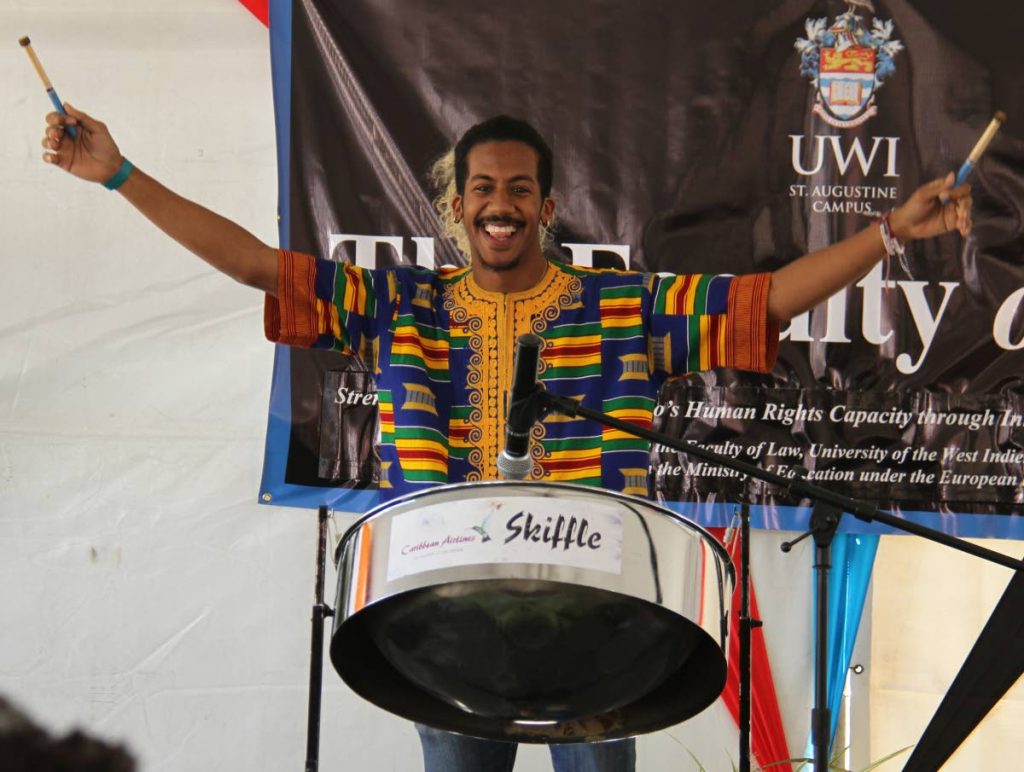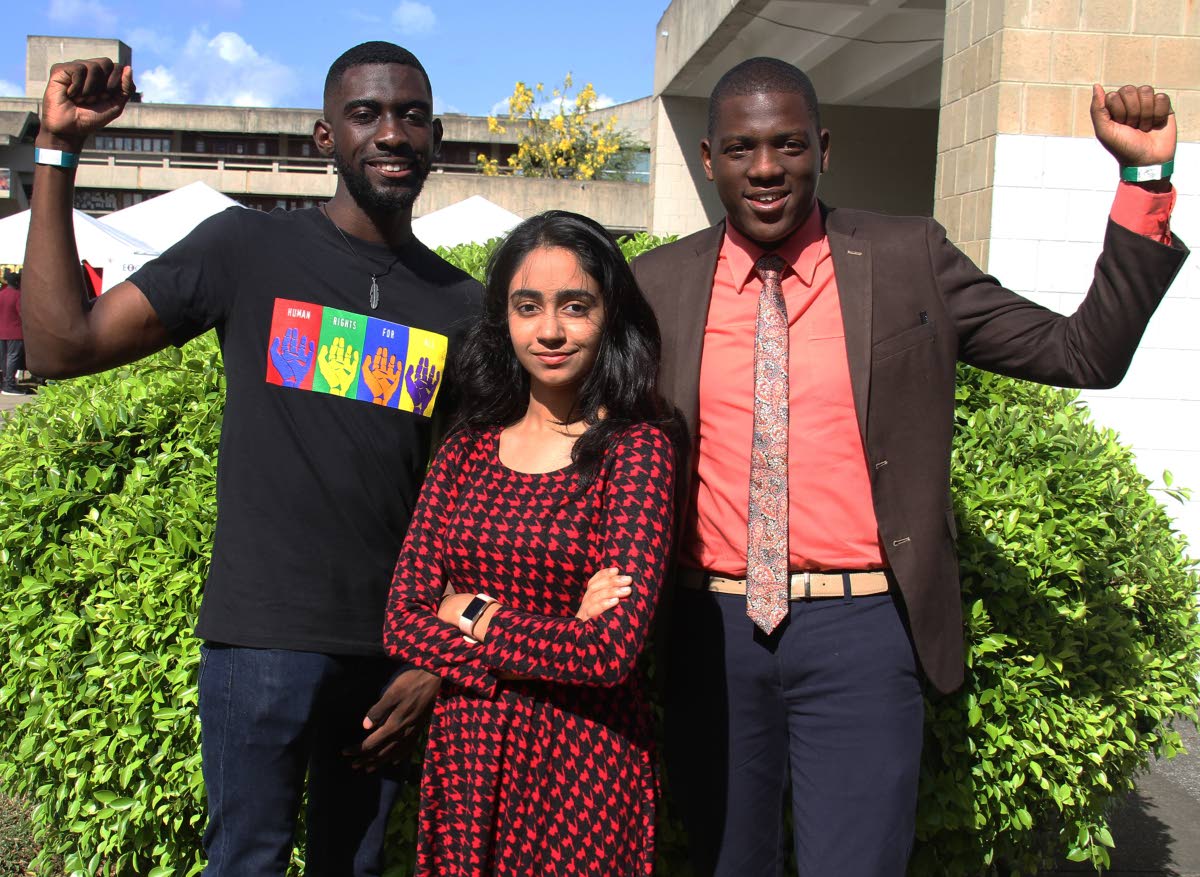Activism can bring about change

UNC Senator Khadijah Ameen said activists need to identify a cause they are passionate about and then do something about it, possibly using politics as a vehicle to action.
She said she became involved in politics because of activism “because if you don’t step up then we will continue to complain about the quality of leaders we have in political parties. So any time you feel to complain, complain to yourself, step up, and take action. Take activism to the next level and make it policy, and join in leadership, and join in governance.”
Speaking at the Human Rights Youth Forum at the JFK Quadrangle, UWI, St Augustine, she also urged activists to be realistic and keep the country’s culture in mind when they compared other parts of the world to TT. She said international bodies shared data and expertise with NGOs “but it is important for us to weigh what their reality is versus ours so that we can advocate properly, we can advocate realistically, and we can be relevant to the landscape of TT.”
For example she said unlike many other countries, TT was fortunate to have freedom of speech and expressions, to worship as they wished, and for children to access education. She said it was important not to get caught up in those things while ignoring the basic things TT still needed to fight against including poverty and a lack of basic amenities.
Also speaking at the event was Minister of Community, Development, Culture and the Arts, Dr Nyan Gadsby-Dolly, who said it was important for people to know their rights, when it was being infringed, and what they could do about it.
She said the Committee on Human Rights, Equality and Diversity, of which she was chairman, were looking into several issues including refugees, single fathers, sexual harassment in the workplace, and matters dealing with children.
“The role of the committee therefore is really to look at our society, look at the issues that are unfolding and delve deeply into whether or not we are doing our best, not just as a government, but as a country to address some of these issues that arise because we understand the importance of people knowing their rights.”
She added that the committee would make recommendations to various ministries and agencies which resulted in practical solutions that would actually impact the problems in society.
“As we look forward to developed country status... it’s not just buildings, it’s not just systems, but it is our people and the treatment of our people and the policies in place to ensure equal treatment of our people that become very important for us.”
In addition, Vrishni Maharaj, a Form Four student at Naparima Girls High School, spoke on the difference between equality and equity, how the world was so technologically advanced yet children with disabilities could not get an education, and there was no guarantee that a child would not be gunned down, or even that they would get a meal.
The forum included several outstanding performances by young people – vocal, instrumental, spoken word, poetry, dance and more. One was a rousing and heartbreaking spoken word piece by Zola Simmons from the Joint Force Anticrime Initiative of Change Foundation on her experience in prison before she was acquitted.
There were also several booths manned by members of the Equal Opportunity Commission, Family Planning Association, Santa Rosa First Peoples Community, and the UNHCR which provided information and advice to anyone interested.



Comments
"Activism can bring about change"